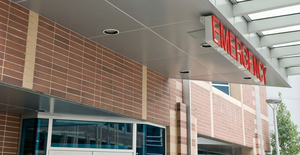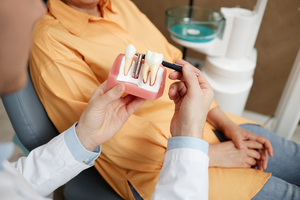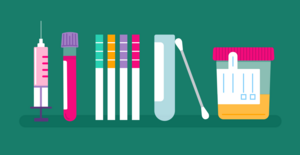DNA test near me
in Coosada, AL
Own a clinic? Add your location.
Help patients book appointments with you on Solv. It's free!
4 instant-book locations


Labcorp
Labcorp


Quest Diagnostics
Quest Diagnostics
Quality Assurance Testing Laboratory
Quality Assurance Testing Laboratory
National Medical Testing Center
National Medical Testing Center
Central Alabama Paramedical Services
Central Alabama Paramedical Services
Alabama Pathology Associates, PC
Alabama Pathology Associates, PC
Alabama Family Practice
Alabama Family Practice
Detect Lab
Detect Lab
Own a clinic? Add your location.
Help patients book appointments with you on Solv. It's free!
Coosada DNA Testing
DNA testing can detect changes and anomalies in your genes, proteins, and chromosomes, which may indicate the presence of an illness or disease. In addition, these tests can help your doctor rule out hereditary illnesses. Approximately 77,000 genetic tests are currently available and in use.
DNA tests are available in a variety of sizes and shapes. Molecular DNA testing examines one or more genes for mutations and alterations, as well as gene-specific variants and illnesses that are passed down through the family. Chromosome DNA tests can detect missing or extra chromosomes, which can reveal illnesses like Down syndrome. Gene expression assays evaluate if certain genes are hyperactive or underactive, whereas biochemical DNA testing examines the activity level and amounts of proteins and enzymes in genes.
Paternity and maternity status, as well as whether two people are brothers or sisters, can all be determined using DNA tests. DNA tests can also be utilized in legal cases, such as proving biological relationships between adolescent and adult children.
DNA tests are used for a variety of objectives, including as screening fetuses and babies for genetic abnormalities and validating the absence of hereditary diseases in people. You can also utilize DNA tests to check if you have inherited a hereditary condition from your family. Your doctor can frequently determine if one or more DNA tests may benefit you based on your family history, symptoms, and health concerns.
Many DNA testing are painless, but depending on the process, others may be more invasive. Blood is frequently taken from the arm or a prick on the finger, while tissue samples are taken from the inside of the cheek or the back of the throat. Other tests, such as those performed on pregnant women, may entail injecting amniotic fluid into the uterus or cervix using needles or a catheter.
Your doctor can explain the specifics of a DNA test, including how long it will take and how to prepare for it.
DNA Test FAQs
How much do DNA tests cost in Coosada?
The cost of DNA testing can range from $100 to over $2,000, depending on a number of factors including the type and number of tests performed, your geographic location, and the test provider. Your health insurance plan may cover DNA tests if your doctor deems them medically necessary to diagnose or better understand your disease. Contact the DNA test provider for more information about testing costs. The cost of DNA testing can range from $100 to over $2,000, depending on a number of factors including the type and number of tests performed, your geographic location, and the test provider. If your doctor believes that DNA testing are medically required to diagnose or better understand your disease, then you should have them done.
Does insurance cover DNA testing in Coosada?
DNA testing is covered by many health insurance policies, especially if your doctor advises it. Check with your insurance carrier or the DNA testing business to determine if DNA testing is covered. It's important to note that some people with health insurance may want to pay for DNA testing out of pocket to avoid having their insurance premiums go up if the results reveal specific health problems.
Where should I get a DNA test in Coosada?
DNA testing is available in labs, hospitals, and walk-in clinics, among other places. Consider inquiring with your primary care physician about DNA testing or requesting a referral to a reputable DNA testing facility in your region. In addition, Solv can help you find the top DNA testing clinics in your area.
How accurate are DNA tests in Coosada?
The Clinical Laboratory Improvement Amendments (CLIA), which are federal regulatory regulations that ensure the accuracy of DNA test results, apply to DNA testing labs and healthcare facilities. CLIA standards involve testing methodology, lab staff qualifications, quality control, and testing processes. Check with your DNA test provider to determine if their tests are CLIA-certified, and don't be afraid to voice any concerns you have about the results' accuracy.
How long does it take to get DNA test results in Coosada?
DNA test results might take anywhere from a few weeks to many months, depending on the type of testing. Prenatal DNA test results are frequently accessible within a few days due to the critical considerations that parents must make when genetic abnormalities are detected. Paternity DNA test results usually take four to six weeks to appear. Inquire with your doctor about the timeframe for receiving the results of your DNA test.
How do DNA tests work?
DNA testing usually require a small sample of bodily tissues or fluids, such as blood, hair, or skin. Your DNA sample is then sent to a lab, where technicians examine it for mutations or anomalies in DNA, proteins, or chromosomes that could indicate the presence of specific diseases or disorders. The majority of DNA tests are painless and just take a few minutes to perform.
Do I need to see a doctor before getting a DNA test in Coosada?
Some DNA tests can be acquired online or over-the-counter at drugstores and pharmacies without the need for a doctor's approval. However, many DNA tests supplied to the general public are not CLIA-certified and may produce inaccurate or unreliable results. Seeing your doctor before taking a DNA test has a number of benefits, including determining whether testing is necessary and ensuring accurate results.
How can I book a DNA test on Solv?
On Solv, scheduling a DNA test is simple and straightforward. Go to the Solv website, type in the type of testing service you need and your area, and then click the search option. Solv will generate a list of top-rated healthcare practitioners and labs that perform this type of testing in your area. To make an appointment, go to the provider's page and contact them using the information given.
How long does getting a DNA test take?
The collection of blood, hair, and other samples for a DNA test usually takes only a few minutes. Certain types of DNA testing, such as amniocentesis, which is performed on pregnant women, might take a long time. Contact the DNA testing firm ahead of time to find out how long your DNA testing session will last. You should arrange an appointment rather than go into a facility if you want to reduce the amount of time you spend waiting for your DNA test.
Should I try at-home DNA testing?
Convenience, low cost, and complete privacy are just a few of the many benefits of taking a DNA test at home. It's important to keep in mind, though, that not every at-home DNA testing is accurate and reliable. Before you try at-home DNA testing, speak with your doctor about the advantages and disadvantages, as well as the brands they prefer and trust to provide accurate results.

Updated on Jan 25, 2025
Solv has strict sourcing guidelines and relies on peer-reviewed studies, academic research institutions, and medical associations. We avoid using tertiary references.
Related searches
A1C Test in Coosada
Allergy Testing in Coosada
Basic Metabolic Panel in Coosada
Blood Test in Coosada
CMP Test in Coosada
COVID-19 Antibody Test in Coosada
Cholesterol Test in Coosada
DNA Test in Coosada
Diabetes Test in Coosada
Diagnostic Test in Coosada
Drug Test in Coosada
Flu Test in Coosada
Glucose Test in Coosada
H Pylori Test in Coosada
Hepatitis test in Coosada
Lab Tests in Coosada
Mono Test in Coosada
Pregnancy Test in Coosada
Find lab tests
Nearby cities
Everyday Healthcare, Simplified
Expert advice to help you live your best life









